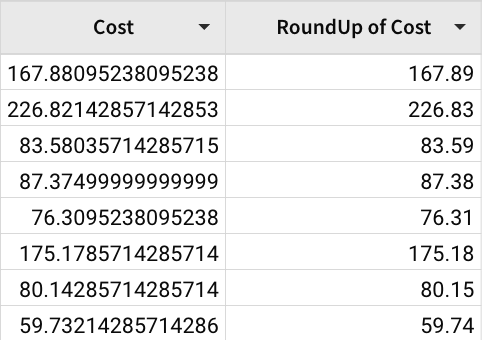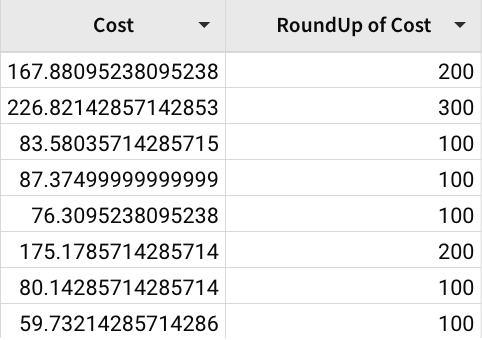RoundUp
The RoundUp function rounds a number up to the specified number of digits. When digits is not specified, the number is rounded to the nearest whole number by default.
Usage
RoundUp(number, [digits])
Function arguments:
- number (required) The number to be rounded.
- digits (optional) The number of decimal places to which to round. If not provided, defaults to 0.
If the digits value is negative, the function will return an integer with that many least-significant digits zeroed (see the example using RoundUp([Cost], -2) below).
Example
RoundUp(3.141, 2)
- Returns 3.15
RoundUp(-3.141, 2)
- Returns -3.14.
RoundUp([Cost], 2)
-
Rounds the value for each row in the input column up. Numbers are rounded by 2 digits.

RoundUp([Cost], -2)
-
Rounds the input number up and replaces its last 2 digits with 0s. A negative digits value returns an integer with that many least-significant digits zeroed.

Updated 17 days ago
